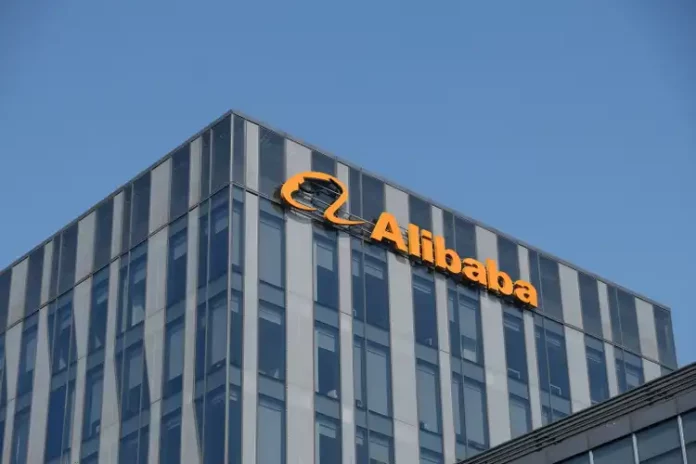Most Asian stocks retreated on Wednesday as mixed signals from the Bank of Japan spurred some profit-taking in Japanese markets, while Hong Kong stocks rebounded sharply on a tech-fuelled rally led by Alibaba Group.
A rout in Chinese stocks appeared to have resumed, with the Shanghai Shenzhen CSI 300 and Shanghai Composite indexes falling 0.7% and 0.4%, respectively. The two indexes had recovered marginally from five and four-year lows on Tuesday following a report that the Chinese government was planning a 2 trillion yuan ($278 billion) support package for local stocks.
But sentiment towards China remained weak amid persistent concerns over a slowing post-COVID economic rebound.
Broader Asian markets were skittish as traders remained on edge over higher-for-longer U.S. interest rates, especially ahead of key economic readings and major tech earnings due later this week. But a series of record-high finishes on Wall Street limited any major losses.
Australia’s ASX 200 was flat, tracking a muted performance in oil and gas giant Woodside Energy Ltd (ASX:WDS) after the firm clocked a smaller-than-expected revenue increase in the December quarter.
Broader Australian stocks also saw some profit-taking, with the ASX remaining within sight of a record high.
South Korea’s KOSPI fell 0.3%, while futures for India’s Nifty 50 index pointed to a muted open, after Indian stocks were hit with a heavy degree of profit-taking in recent sessions.
Japanese stocks fall amid profit-taking, mixed BOJ signals
Japan’s Nikkei 225 and TOPIX indexes fell 0.7% and 0.5%, respectively, leading losses in Asia as investors locked-in profits from the two recently touching 34-year highs.
Sentiment towards Japan was also muddled by mixed signals from the BOJ. While the central bank largely maintained its ultra-dovish stance at the conclusion of a two-day meeting on Tuesday, governor Kazuo Ueda signaled more progress towards an eventual end to negative interest rates in Japan.
Ueda said that the BOJ will still maintain easy policy even after pulling rates from record lows. But any changes to the central bank’s stance signal an end to the ultra-loose conditions enjoyed by Japanese markets for nearly a decade.
A dovish BOJ was a key driver of Japan’s recent stock rally, with the Nikkei clocking an over 30% gain in 2023.
Hong Kong rebounds as Alibaba spurs tech rally
Hong Kong’s Hang Seng index was an outlier for the day, rising 1.3% on gains in heavyweight technology stocks. Alibaba Group (HK:9988) (NYSE:BABA) led the charge, rallying 5% after reports said co-founders Jack Ma and Joe Tsai had bought a collective $200 million worth of shares in the e-commerce major through the fourth quarter.
The report saw Alibaba’s HK shares rebound from a 15-month, and also helped inspire gains in broader tech stocks in the Hang Seng.
Hong Kong shares of Alibaba Group (NYSE:BABA) surged on Wednesday, tracking a bounce in their U.S. counterparts after reports showed co-founders Jack Ma and Joe Tsai were acquiring shares in the e-commerce giant.
Alibaba’s HK shares (HK:9988) jumped 5.5% to HK$71.30 by 21:20 ET, and were the top performers on the Hang Seng index, which added 1.5%. The firm’s American Depository Receipts jumped nearly 8% in overnight trade.
Wednesday’s gains also saw Alibaba’s HK shares rebound from a 15-month low.
A New York Times report showed that Ma had acquired Hong Kong shares worth $50 million in the fourth quarter, while Tsai had bought about $151 million U.S. shares through his Blue Pool Management entity.
Ma had stepped down as executive chairman in 2019, but still held a substantial stake in Alibaba. Tsai is the current chairman of the e-commerce firm, after taking over the role from Daniel Zhang in 2023.
Ma had relinquished his control in Alibaba’s fintech unit Ant Group in 2023, following a botched attempt at listing the firm. He had also largely dropped out of the public spotlight since 2020, amid a widening regulatory crackdown against China’s biggest technology firms.
Tuesday’s report helped inspire some confidence in Alibaba, which was sold off heavily over the past year as plans for a six-way split fell through. The e-commerce giant was also facing increased competition in its home market from PDD Holdings (NASDAQ:PDD), while consumer spending in China also failed to pick up substantially from COVID-era lows.
Peers Baidu Inc (HK:9888) (NASDAQ:BIDU) and Tencent Holdings Ltd (HK:0700), which along with Alibaba make up China’s BAT trio, rose 4.9% and 1.4%, respectively.
Still, the Hang Seng was trading close to 15-month lows, as sentiment towards China- which is a key driver of the Hong Kong market, remained weak. – Investing.com









